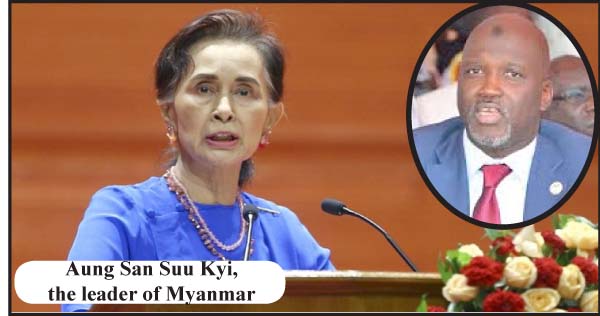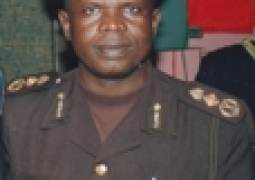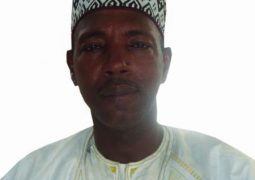
Aung
San Suu Kyi, the leader of Myanmar, has accused The Gambia for bringing an
‘‘incomplete and misleading’’ case against her government at the International
Court of Justice (ICJ) over the treatment of Rohingya Muslim minority.
The
Gambian team led by Attorney General and Minister of Justice Abubacarr Tambadou
alleged at the U.N’s highest court that such treatment against the Muslim
minority group violated the 1948 Genocide Convention thus demanding an end to
it.
The
ICJ has various functions; however, its primary duties are to settle
international legal disputes submitted by member states. It also has the
jurisdiction to give advisory opinions on legal issues referred to it by the
UN.
But
Banjul officials with their representatives who are shouldering one of the most
daunting and overwhelming tasks of trying to bring the Myanmar leaders to
justice for alleged genocide has received a vigorous defence from the accused.
The
serious allegations at the ICJ prompted Suu Kyi and some of her top military
officials to formally present and give conspicuous response to the charges
describing them as ‘‘factually misleading.’’
Even
though nearly a million Rohingya fled for their lives during the operation in
2017, the authorities in Myanmar are determined that they did the right thing
and had since refused to back down despite mounting pressure.
Suu
Kyi, who is also a Noble Peace Prize laureate in defending herself and in
trying to convince the Court and the world, noted that the conflict in the
‘‘Western Rakhine State was complex and not easy to fathom.’’
Consequently,
she dismissed Gambia’s claim as ‘misleading’ but accepted that
‘disproportionate force’ may have been used by the military during the days of
the conflict.
Notwithstanding
the fact that a published United Nations fact-finding mission called it ‘‘the
gravest crimes under international law’’, Suu Kyi used the terrorism slogan to
justify the crackdown.
She
defended that “the military clearance operations in Rakhine were justifiable
response to the acts of terrorism…’’
The
Gambian legal team tendered both the testimonies of the victims as well as
graphic and striking photos of what happened, but little was done to change
Myanmar’s position.
The
Point learnt that so far, Gambia has both political and moral support by the
Organisation of Islamic Cooperation and other nations. Also reports suggested
that both Canada and the Netherlands including some EU countries also publicly
supported Banjul.
Furthermore,
the country has been widely hailed across Europe for a ‘bold move’ in trying to
see to it that justice is done on behalf of the Rohingyas in Myanmar.
However,
human rights groups equally called on The Gambia government to also make sure
that perpetrators of gross human rights violations on its own soil are fully
accountable for what they did. They demanded prosecutions to take place in The
Gambia ‘‘as soon as possible and victims properly compensated because justice
begins at home.”



